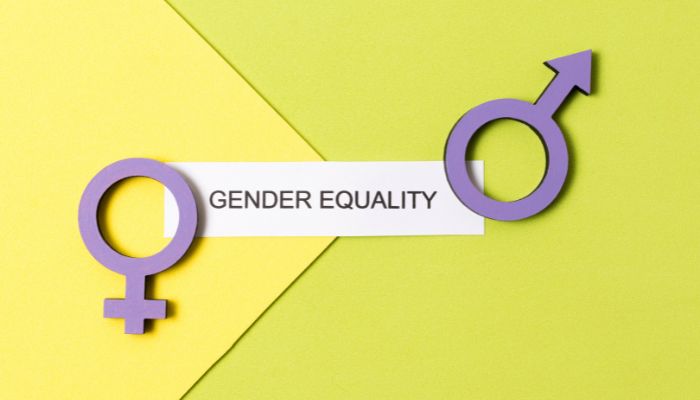Touted as “employee welfare” schemes since the 1950s, both have failed their clients since birthing and in COVID.
Covid reminds us that a modern state is a welfare state — governments worldwide launched 1,600 plus new social protection programmes in 2020. It also reinforces the importance of resources — America’s fiscal deficit this year is more than India’s GDP. While sustainable social security lies in raising India’s 138th ranking in country per-capita GDP, we make the case for three reforms to our biggest health insurance and pension schemes: The Employee State Insurance Scheme (ESIS) and Employee Provident Fund (EPF). Both have hostages rather than clients with no option to opt out or choose a competitor. Touted as “employee welfare” schemes since the 1950s, both have failed their clients since birthing and in COVID. Changing who wields the tool will change, for the better, what they do.
ESIS is India’s richest and biggest health insurance scheme with 13 crore people covered and Rs 80,000 crore in cash. Employers with more than 10 employees make a mandatory 4 per cent payroll deduction for employees earning up to Rs 21,000 per month. Despite covering roughly 10 per cent of India’s population, a recent working paper from Dvara Research suggests high dissatisfaction. The constraint is hardly resources: ESIC’s unspent reserves are larger than the Central government’s healthcare budgetary allocation. Painfully, its annual profits of Rs 10,000 crore persist.
EPF is India’s biggest pension scheme with a Rs 12 lakh crore corpus and 6.5 crore contributors. Employers with more than 20 employees make mandatory 24 per cent payroll deductions for employees earning up to Rs 15,000 per month. It only covers 10 per cent of India’s labour force and 60 per cent of accounts and 50 per cent of registered employers are inactive. EPF’s 1991 creation of a defined benefit component — contested by employers then as unsustainable — can now only be made solvent with an unfair benefit cut or taxpayer haircut. EPF offers poor service and pathetic technology despite employer-funded administrative costs that make it the world’s most expensive government securities mutual fund.
This article’s title comes from a wonderful new book, What We Owe Each Other: A New Social Contract by Nemat Shafik of London School of Economics, that suggests updating the risk-sharing framework in societies because current structures are breaking up under the weight of changes in the role of women, longer careers, technology, globalisation, and much else. She suggests a more nuanced social security redistribution across time (the piggy bank function), incomes (the Robin Hood function), and financial burden-bearing (the state, individuals, or employers). These political questions require political answers for India that don’t lie in unaffordable universal basic income proposals but fixing the problems of EPF and ESIS — poor coverage, high costs, unsatisfied customers, metrics confused with goals, jail provisions, excessive corruption, low expertise, rude and unaccountable staff with no fear of falling or hope of rising, and no competition. These problems can’t be solved by bureaucrats or courts because they are not technical problems (with a right answer) but adaptive problems (with multiple options and unmodellable trade-offs). Let’s look at possible solutions.
Structure: Apart from not having clients but hostages, EPF and ESIS combine the roles of policymaker, regulator, and service provider. Splitting roles is a precondition for performance because goals, strategy, and skills are different. An independent policymaker horrified with only 6 lakh of India’s 6.3 crore enterprises covered would create competition. An independent regulator terrified by ESIS overcharging would frown on a claims ratio of less than 75 per cent. An independent service provider would invest heavily in technology, customer service, and human capital. Splitting roles would lead to competition from NPS for EPF, ending VIP opt-out by merging CGHS with ESIS, raising enforceability by making employee provident fund contribution voluntary, improving portability by de-linking accounts from employers, and targeting universalisation by simultaneously ending minimum employer head-count and employee salary contribution thresholds while introducing absolute contribution caps. The Health and Finance Ministry would be logical homes for ESIS and EPF policy roles.
Governance: The governing board of ESIS and EPFO have 59 and 33 members respectively. Such a large group can’t have meaningful discussions, make decisions, and exercise oversight. They also fail Professor Ram Charan’s evaluation of an effective board — focus on substantial issues, information architecture, and board dynamics. This governance deficit needs smaller boards (not more than 15), age limits (70 years), term limits (10 years), expertise (technology, HR, health, pensions, finance, etc), active sub-committees (HR, Investments, and technology) and real powers (appointing the chief executive, setting targets, holding management accountable).
Leadership: Health and pensions need complex skills developed over time; Malcolm Gladwell’s 10,000 hours of deliberate practice. Yet, ESIS and EPF are led by generalist bureaucrats who not only view their posting as a government backwater but their weak domain expertise feels like the cabin crew is flying the plane. Both organisations need professional chief executives. Philosopher Isaiah Berlin’s framing of the generalist vs specialist debate as hedgehogs (who know one thing) and foxes (who know many things) is important. A democracy’s generalists are its politicians and its delivery organisations must be run by technocrats. A less generalist, non-transitory, and non-cadred chief executive would create a new tone-from-the-top around performance management, technology, and service outcomes.
Equality is democracy’s fundamental premise. India and Pakistan born on the same night have had very different democratic destinies for many reasons but one is their distorted tone-from-the-top around equality; Allama Iqbal lamented people being counted rather than weighed, Yahya Khan suggested his people were too emotional to vote, and Pervez Musharraf legislated that election candidates need to be graduates. India’s democracy has been better at the complex trade-offs that create equality, though gaps remain. Social security — not a borrowing binge that steals from our grandchildren — can blunt structural and COVID inequality when combined with complementary policies like formalisation, financialisation, urbanisation, and better government schools. But a great place to start is three flick-of-pen, non-fiscal reforms at EPF and ESIS.
This column first appeared in the print edition on April 21, 2021 under the title ‘A new social contract’. Sabharwal and Mehrishi are, respectively, an entrepreneur and former civil servant
Disclaimer: This article was first published on The Indian Express. No changes to the content has been made.






